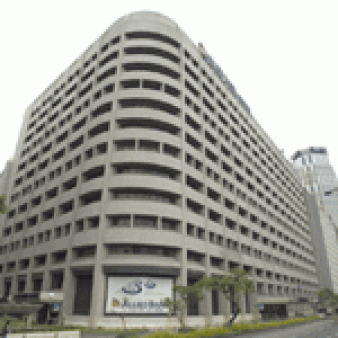
Philippine banks in better shape than others in region: Moody's
The credit stress due to economic recession in the Philippine banking system is low relative to other Asian countries, according to Moody's.
The ratings company noted that Philippine banking system non-performing loans (NPLs) have remained resilient to the global downturn and have shown no signs of increase yet. In addition, Philippine banking system loans have experienced modest growth in the past ten years, and have continued to experience growth during the course of 2009.
However, a rating review has been prompted by the severity and longevity of the global economic crisis -- as reflected by Moody's negative credit outlook on the Philippine banking system. Over the next two years, banks are likely to experience higher credit-related write-downs, lower growth and lower revenue, which in turn may pressure the banks' current capitalisation levels.
Moody's notes that today's rating actions reflect the increasingly negative impact of the global economic crisis on the Philippine economy and on the intrinsic strength of its financial institutions. Given the systemic nature of the crisis and the large, but not unlimited, resources of the Philippine government, Moody's has taken the view that the banks' local currency ratings need to be more closely aligned with the government's local currency debt rating, since it now represents the primary driver of their credit strength.
A reassessment of the level of systemic support for nine Philippine banks to determine whether the systemic support they receive needs to be more closely aligned to the government's B1 positive local currency bond rating will be conducted by Moody's. Philippine banks currently receive between two to six notches of systemic support.
The Philippine banking system is relatively small, compared to its Asian counterparts, with banking assets equaling only 70 percent of GDP. The Philippine government's debt, low relative to GDP, is underpinned by the strong liquidity of the domestic banking and financial system.
This situation allows the government a high degree of flexibility to extend support to the banking system -- or at least to the top ten banks, which Moody's believes are systemically important because they command close to 70 percent of system deposits -- through liquidity and capital assistance, as has previously happened.
Moody's also sees the Philippines to be a low support country. This guideline takes into consideration the history of support for banks, plus the size, strength and degree of fragmentation of the Philippine banking system.
In a low support country under worsening economic conditions, Moody's current review focuses on the rationalisation of bank ratings that currently receive multiple notches of uplift due to systemic support.
The banks on review for possible downgrade are Allied Banking Corporation (ABC), Banco de Oro Unibank (BDO), Bank of the Philippine Islands (BPI), Development Bank of the Philippines (DBP), Land Bank of the Philippines (LBP), Metropolitan Bank and Trust Company (MBT), Philippine National Bank (PNB), Rizal Commercial Banking Corporation (RCBC) and United Coconut Planters Bank (UCPB).






















 Advertise
Advertise








